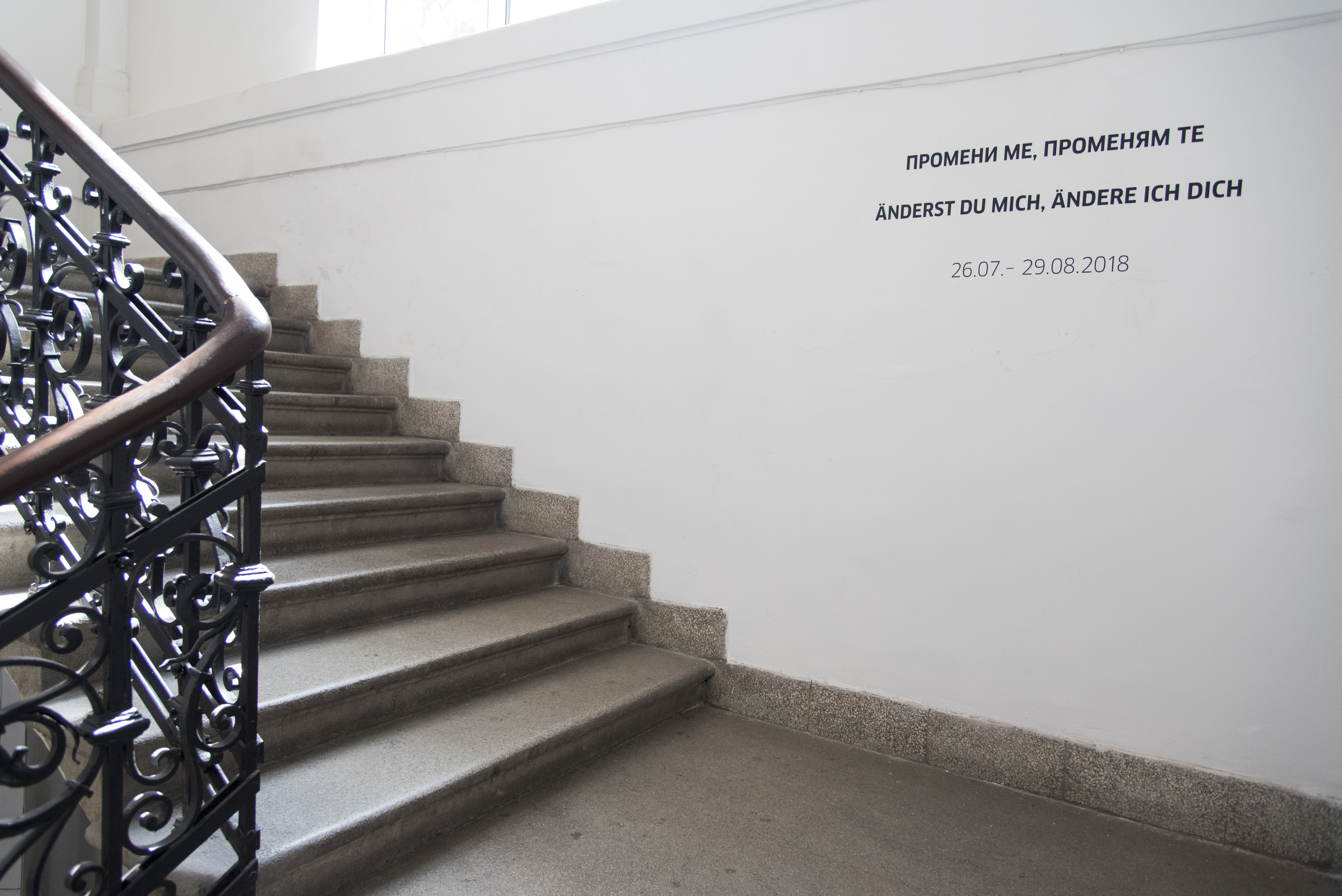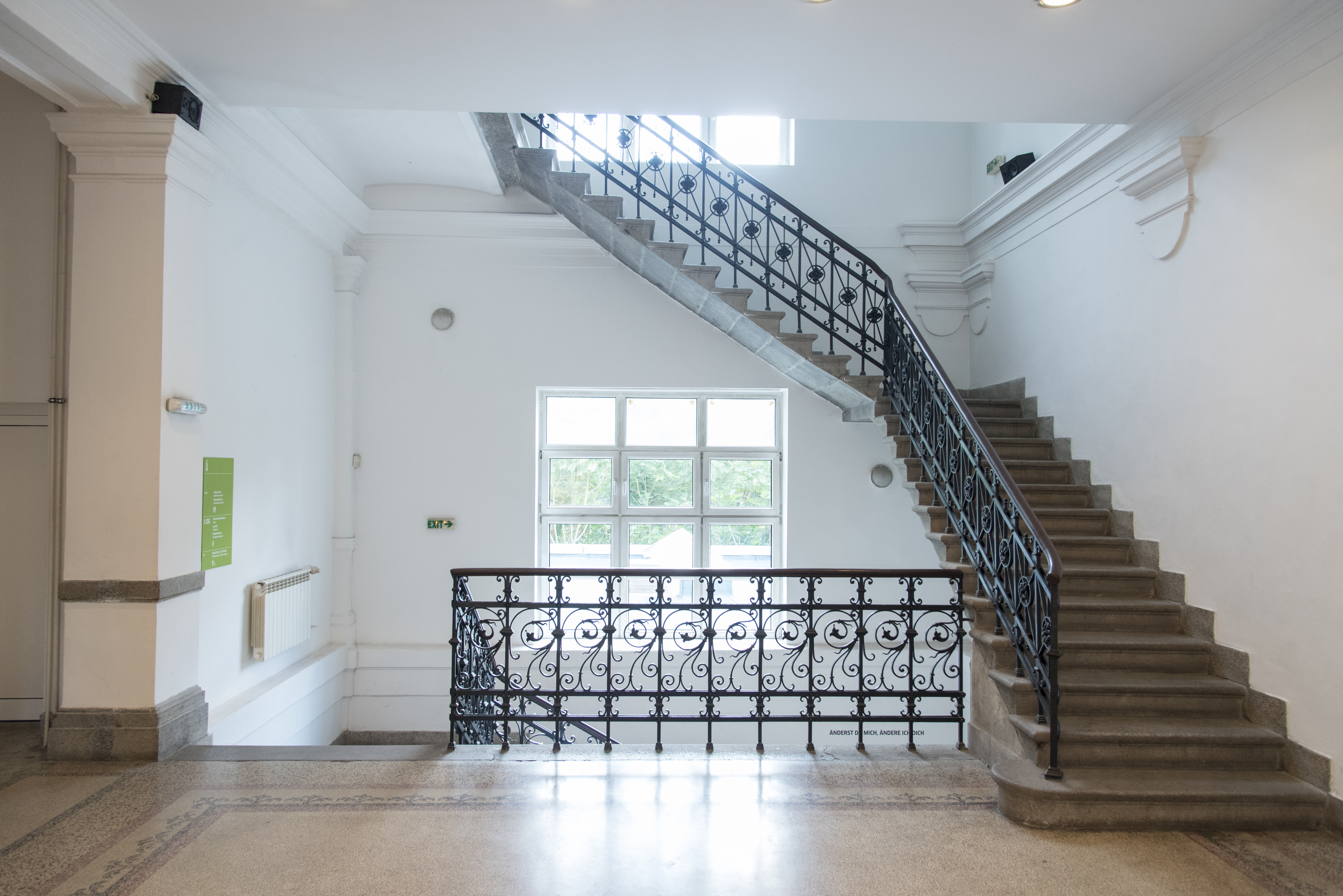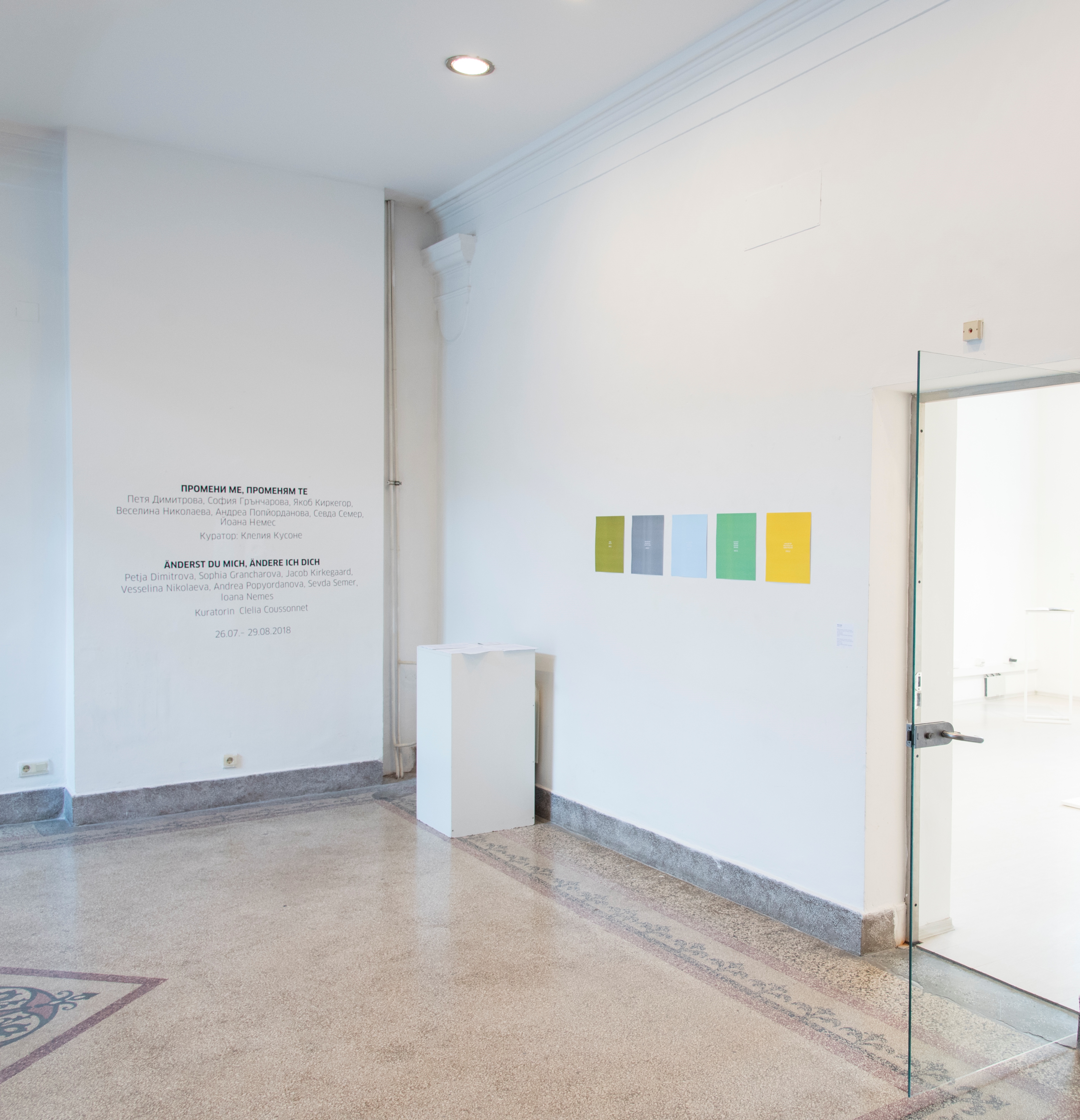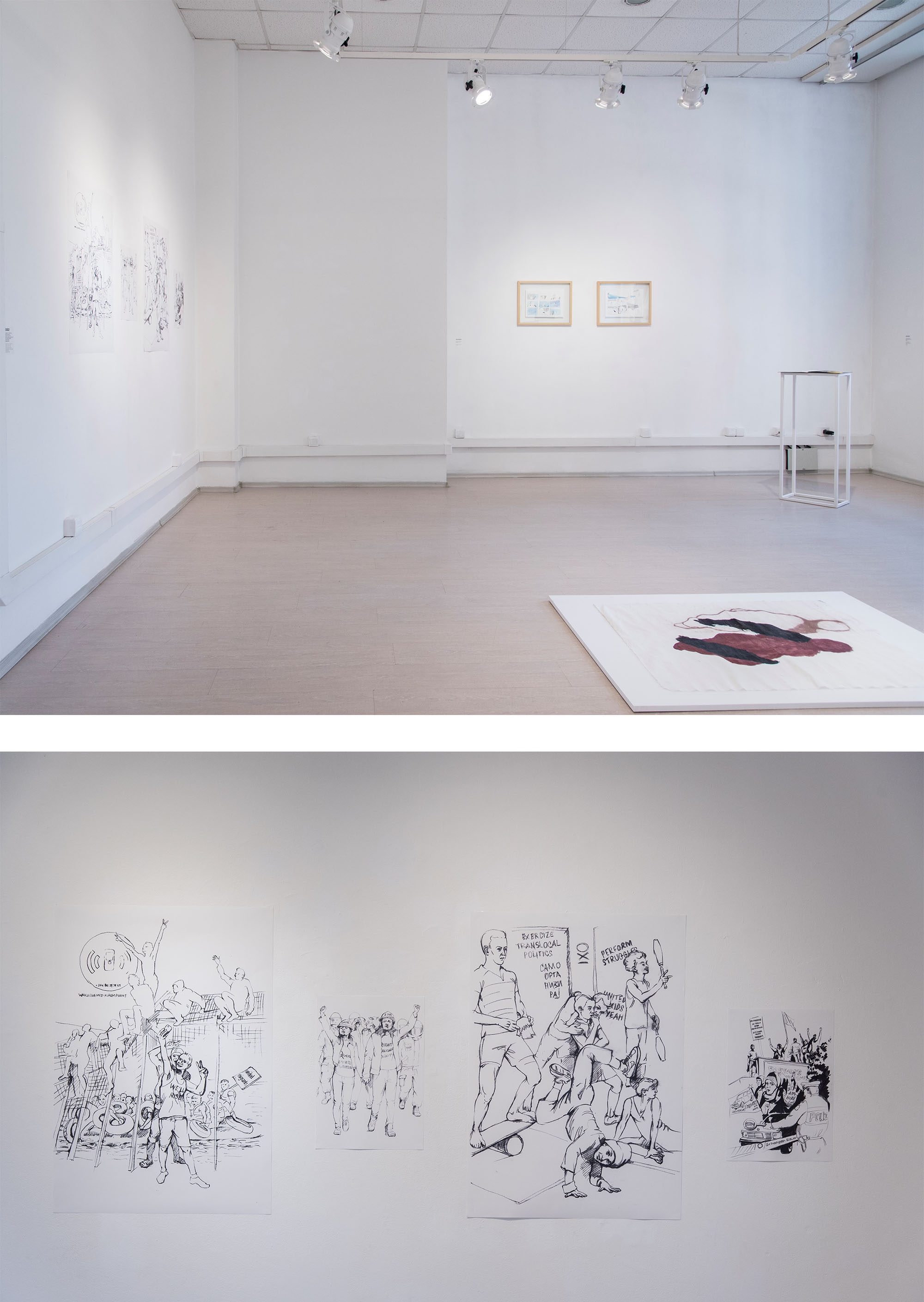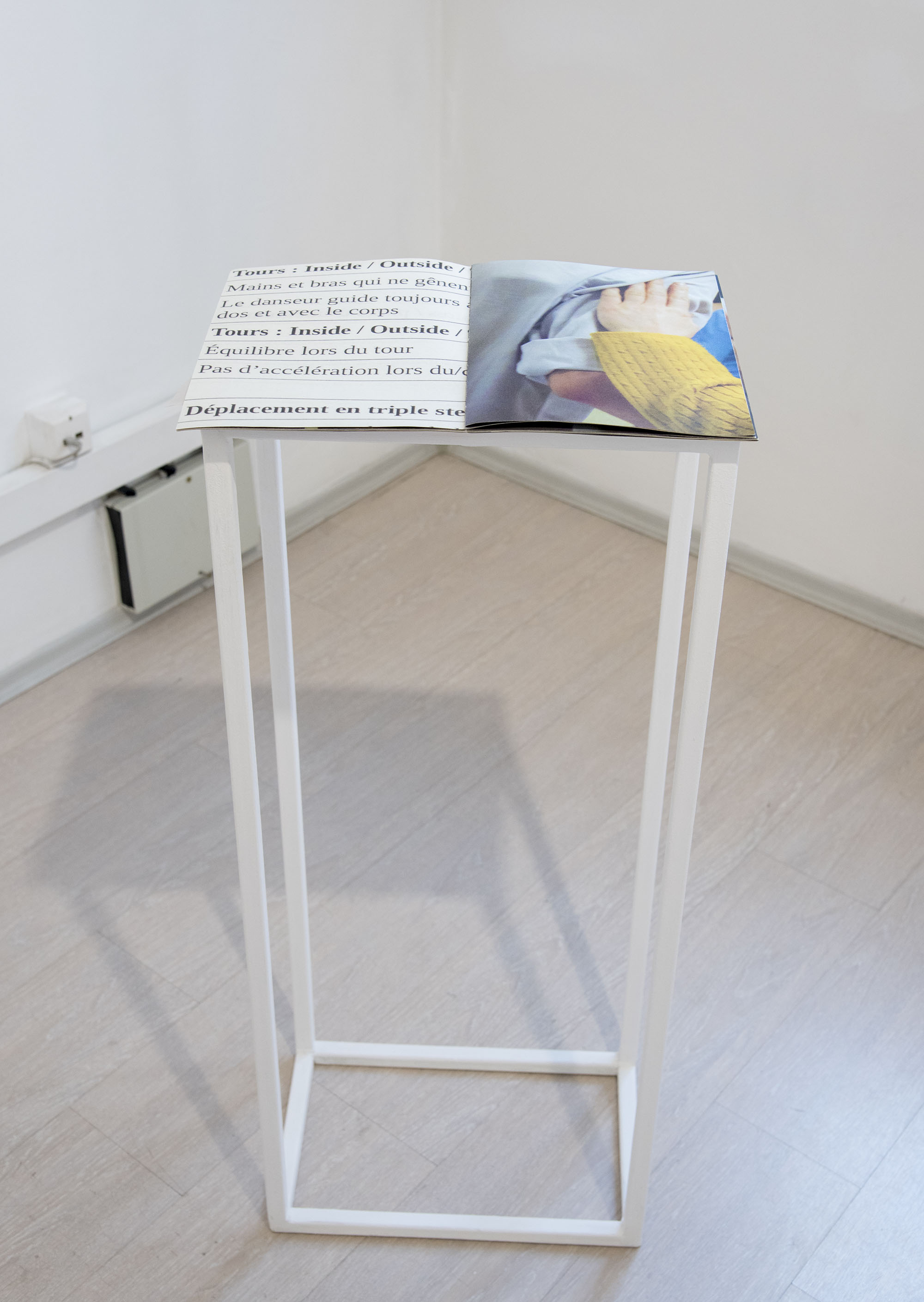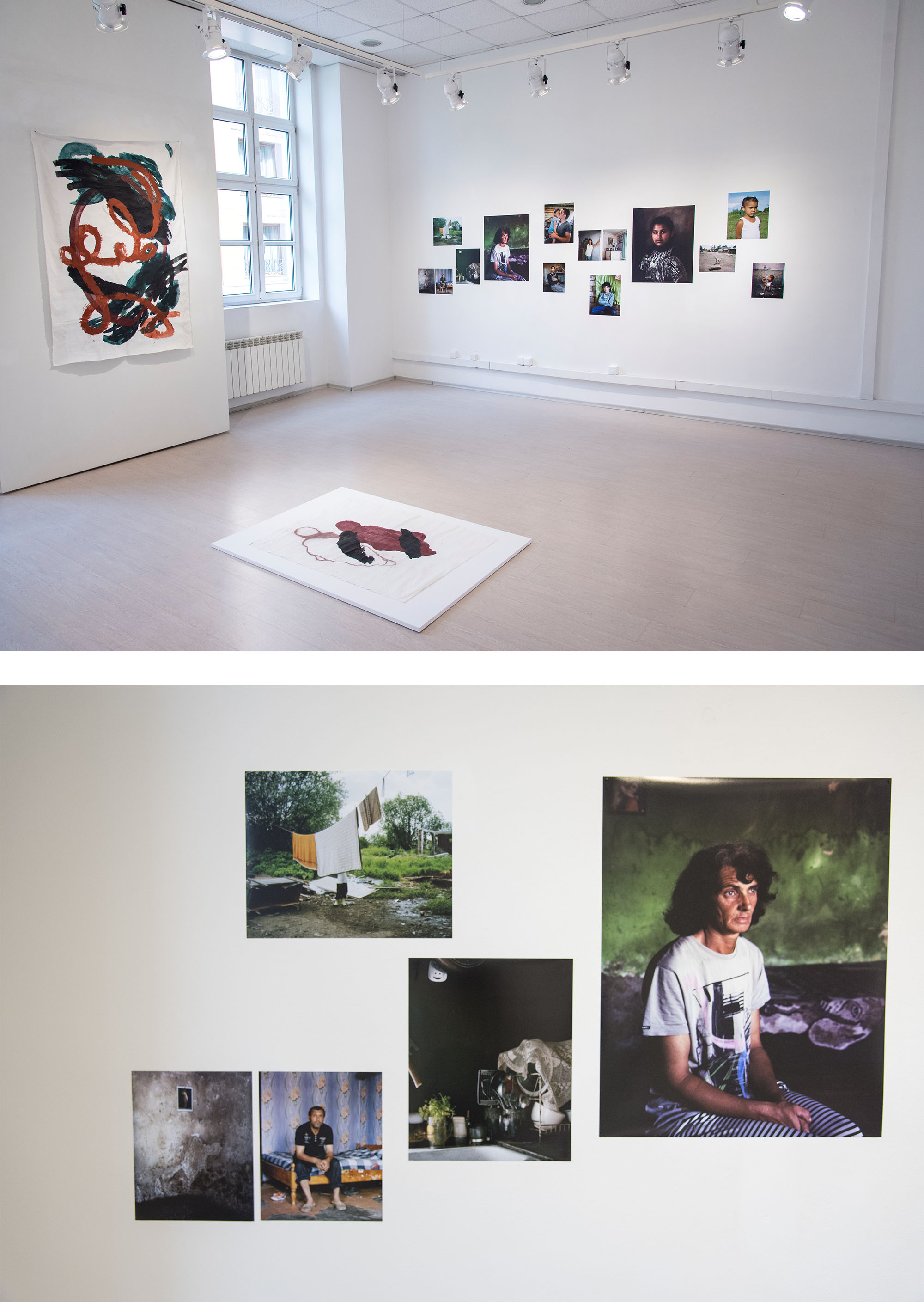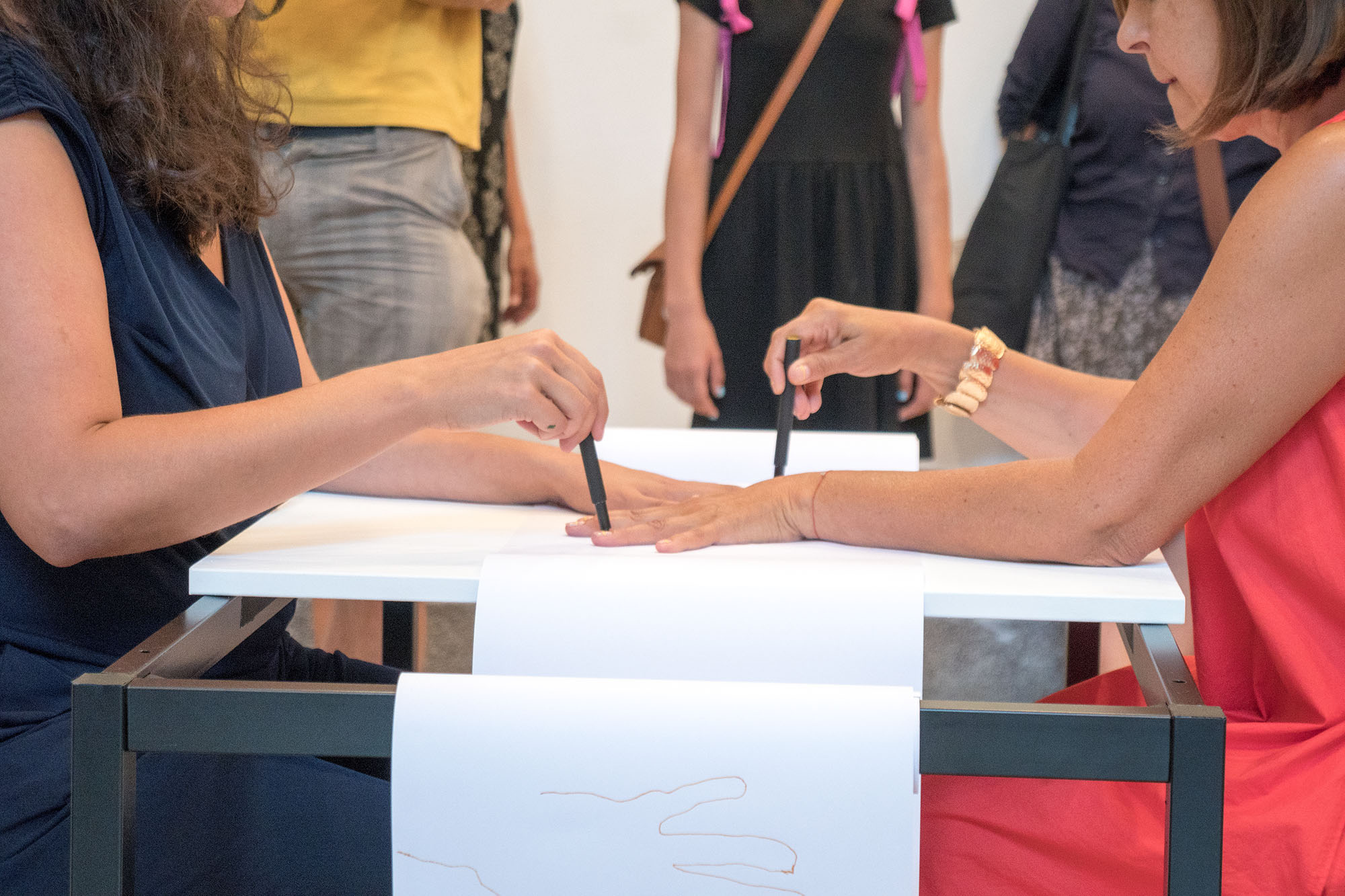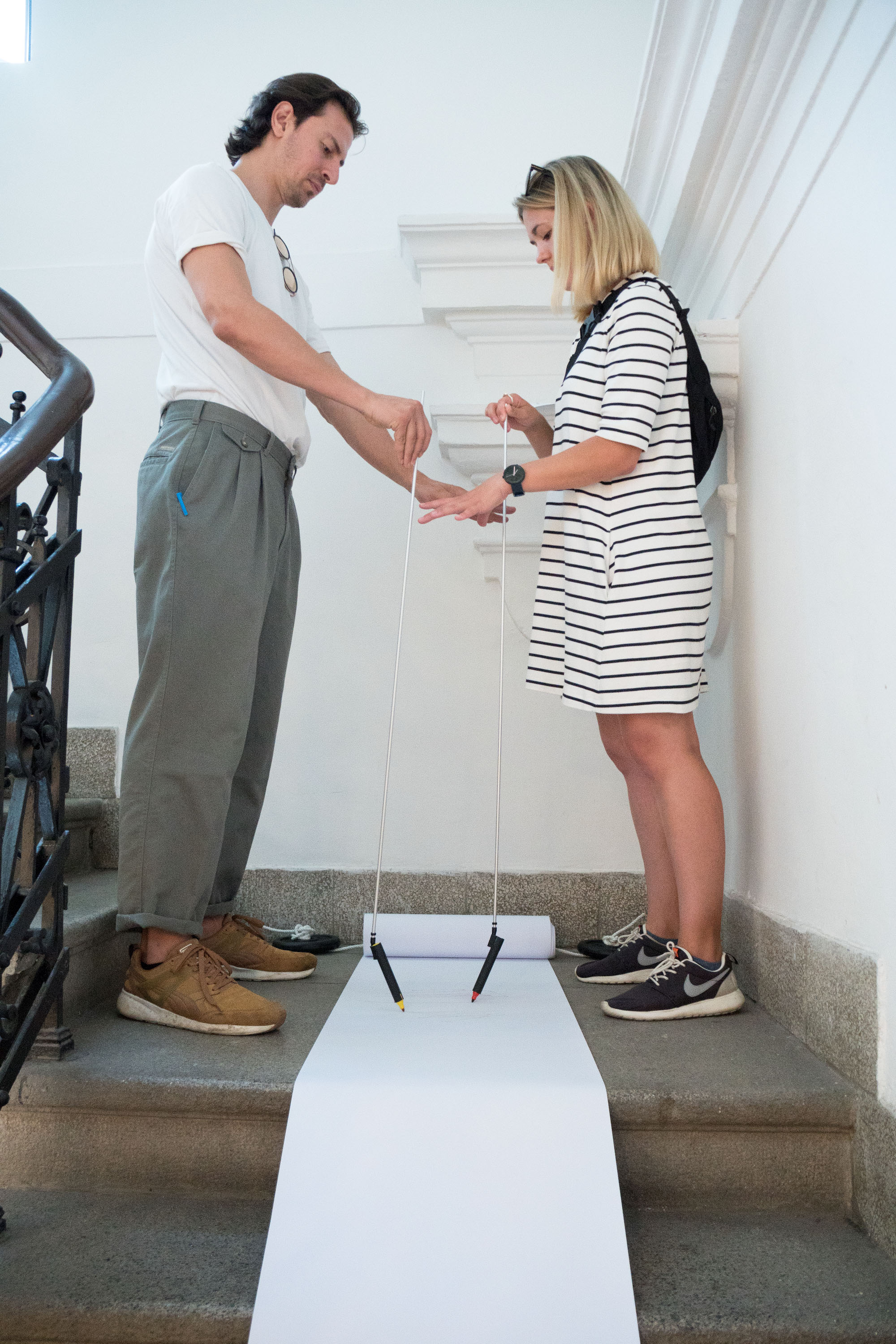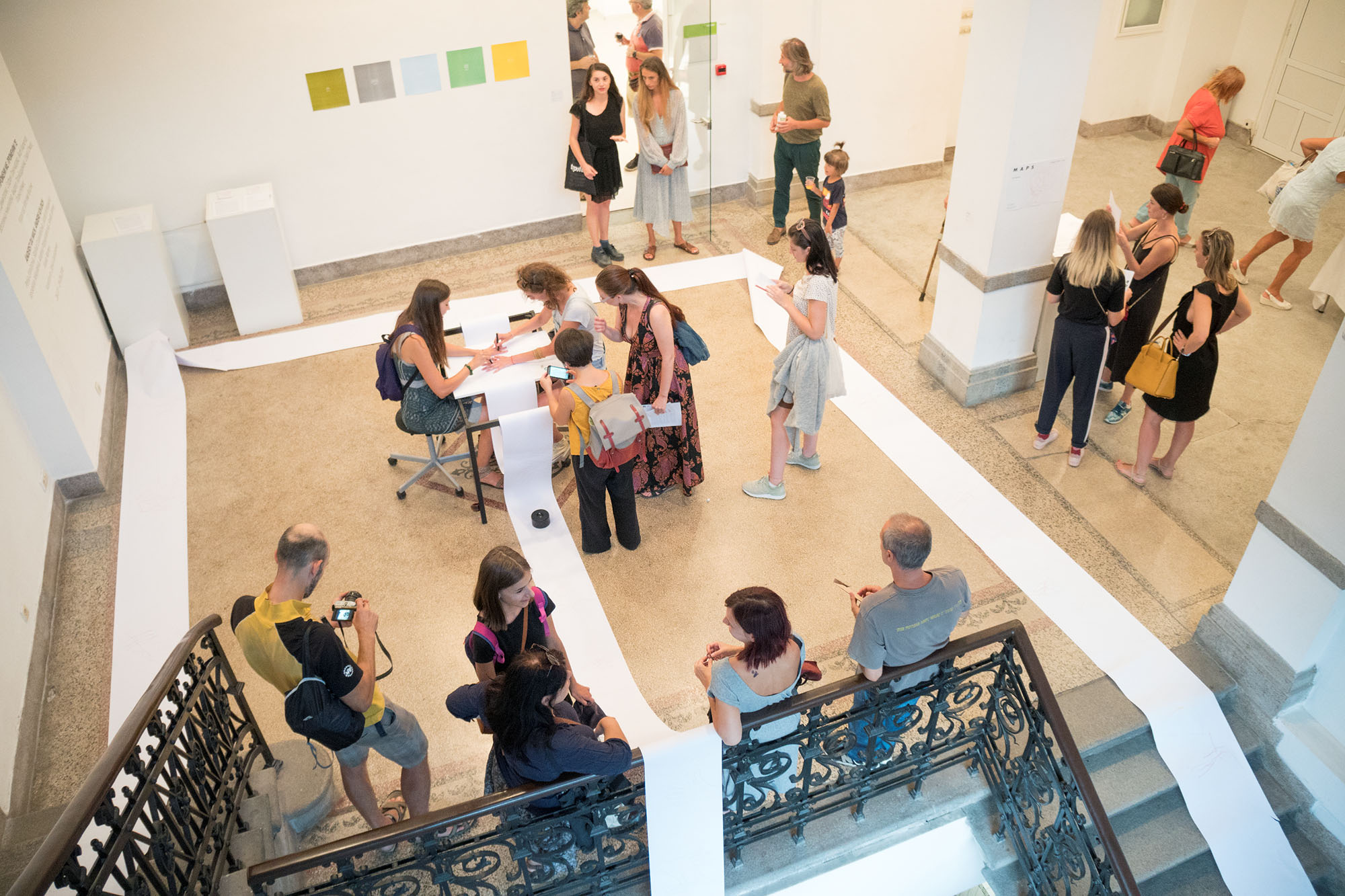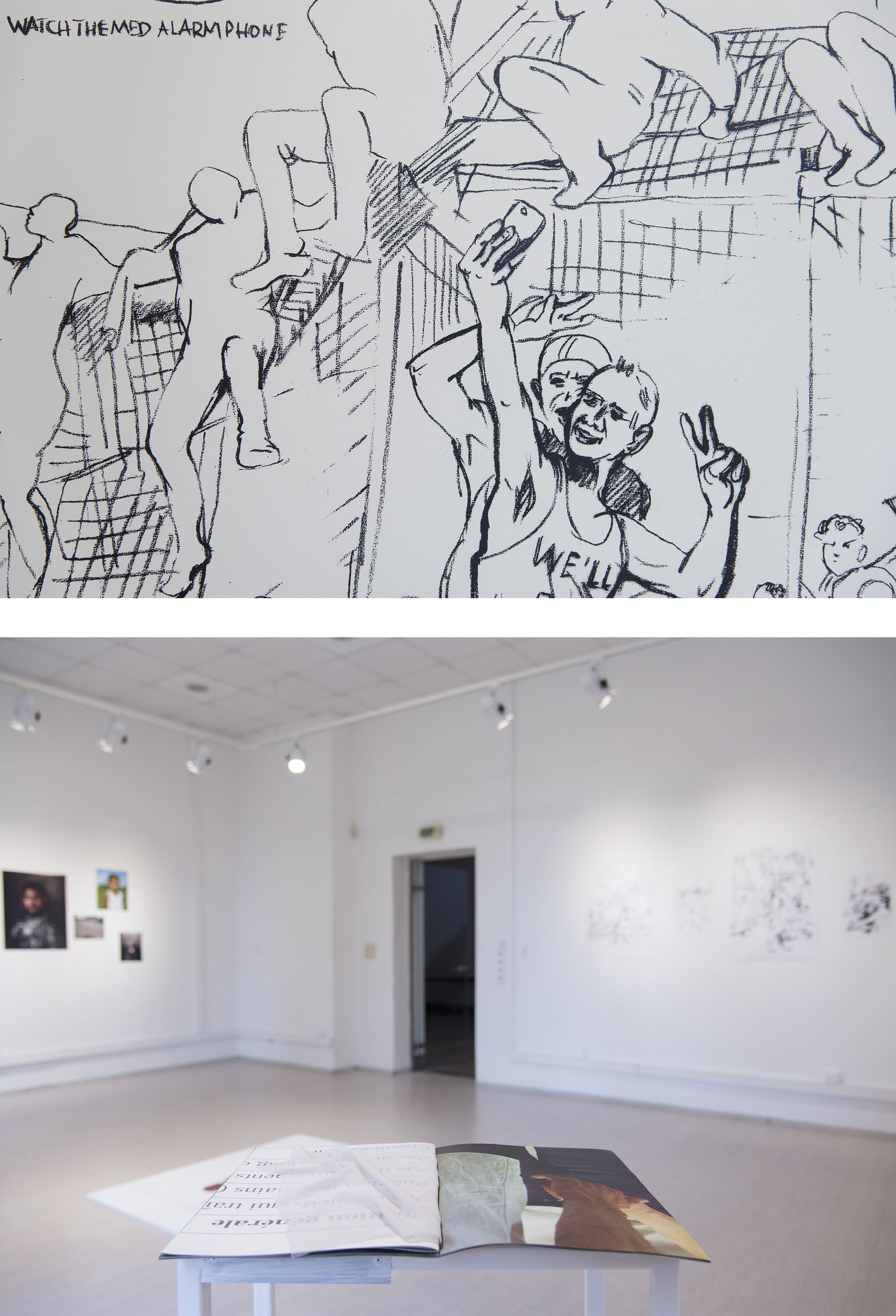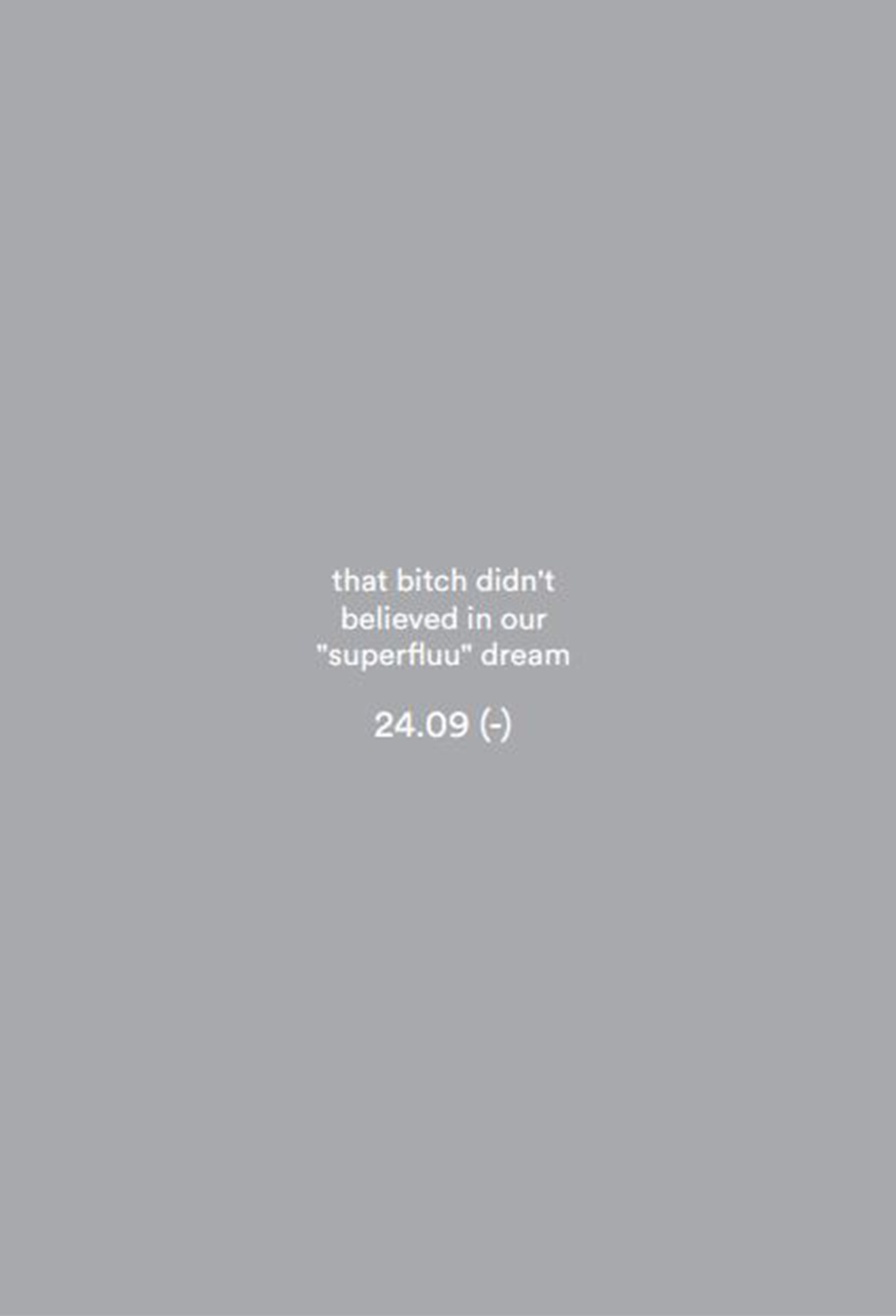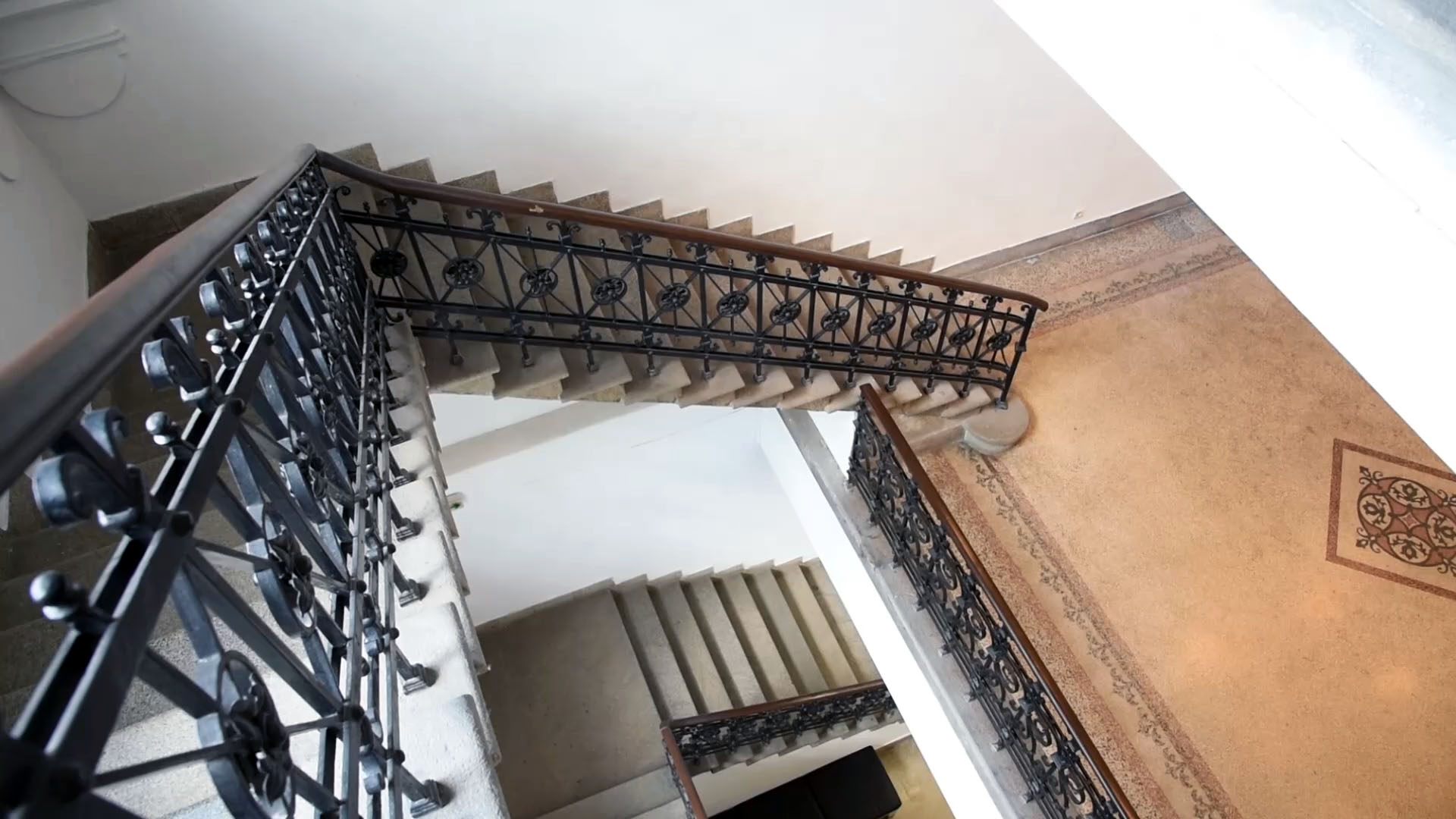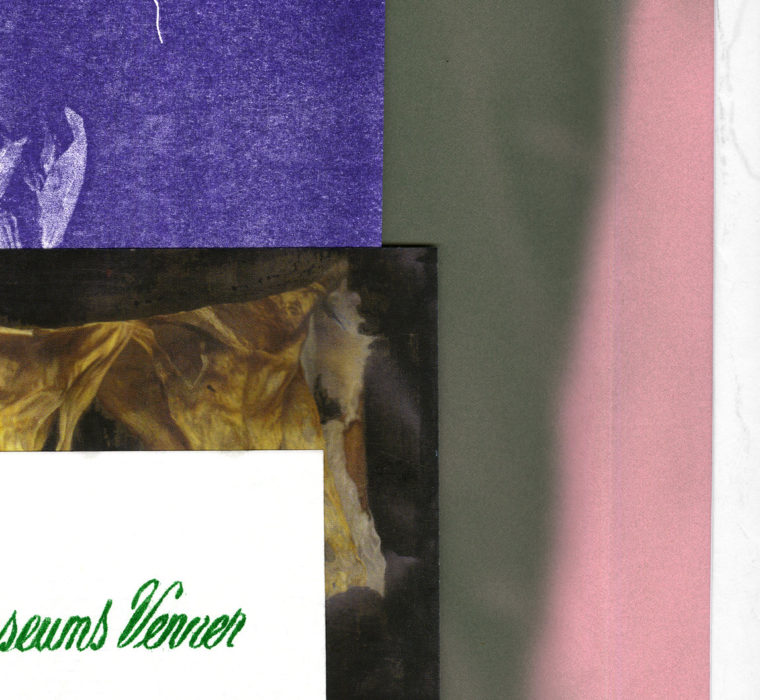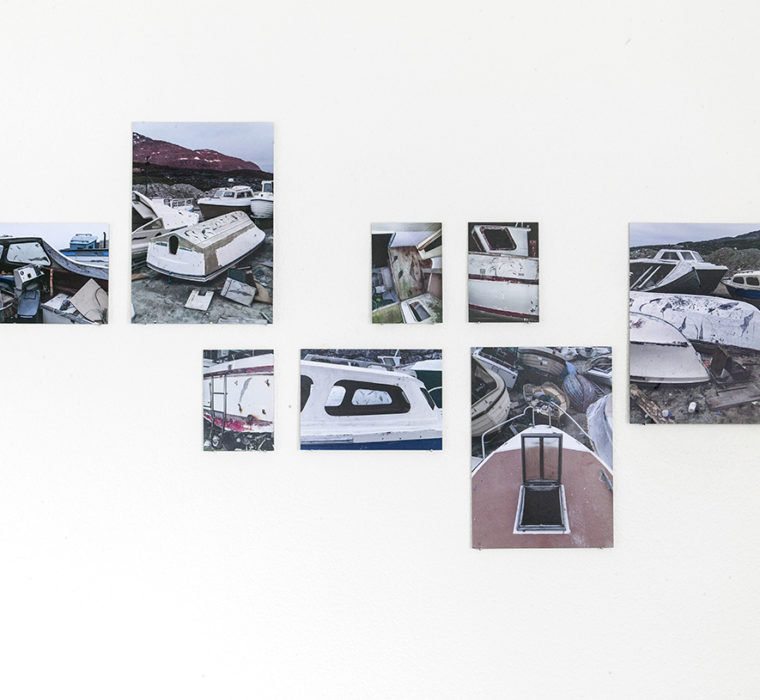Alter Me, Alter You
[Промени ме, променям те]
Artists
Petja Dimitrova
Sophia Grancharova
Jacob Kirkegaard
Ioana Nemes
Vesselina Nikolaeva
Andrea Popyordanova
Sevda Semer
Vitto Valentinov
Alter Me, Alter You
[Промени ме, променям те]
Artists
Petja Dimitrova
Sophia Grancharova
Jacob Kirkegaard
Ioana Nemes
Vesselina Nikolaeva
Andrea Popyordanova
Sevda Semer
Vitto Valentinov
Conscious and unconsciously, the other is a lingering preoccupation, a boundary that waits to be crossed as we stretch in space. An entity that induces back and forth movements: within us, between us and the other, and the other and us. The collective exhibition Alter Me, Alter You looks into otherness, understood along the lines of the philosophical concept of alterity. It tackles the idea of getting out of oneself to encounter and relate to the other(s). The first contact might be a physical reaction of all our senses –smell, touch, hearing, sight and taste– to the presence of the foreign. Verging from seduction to violence, from caress to friction, from confusion to awkwardness, the encounter is demanding. It is rarely insipid as it entails a new experience of the self.
Conscious and unconsciously, the other is a lingering preoccupation, a boundary that waits to be crossed as we stretch in space. An entity that induces back and forth movements: within us, between us and the other, and the other and us. The collective exhibition Alter Me, Alter You looks into otherness, understood along the lines of the philosophical concept of alterity. It tackles the idea of getting out of oneself to encounter and relate to the other(s). The first contact might be a physical reaction of all our senses –smell, touch, hearing, sight and taste– to the presence of the foreign. Verging from seduction to violence, from caress to friction, from confusion to awkwardness, the encounter is demanding. It is rarely insipid as it entails a new experience of the self.
Through alterity, we can contact the multiple in us. Yet, otherness is susceptible to be entangled in tensed socio-political conditions. The other, embodying fears. becomes an alien body to destroy, the possible symbol of latent conflicts or social disintegration. The current shift in European politics reveals otherness as subjected to power relations and domination. Thinking about our differences poses the crucial questions of acceptance and tolerance in order to build together, especially as a broad-spectrum of minorities are continuously discriminated against or rejected to the fringes of society because of their ethnicity or migrant origin, gender, disability, sexual orientation and beliefs. In this sense, otherness perpetually taps into liminal borders between inclusion/exclusion, solidarity/competition, disagreement/symbiosis, the intimate/the public, individual/the collective. Looking at the other in me and at me in the other becomes a political issue that highlights the ambivalence and duality of our social models and calls for activism.
Through alterity, we can contact the multiple in us. Yet, otherness is susceptible to be entangled in tensed socio-political conditions. The other, embodying fears. becomes an alien body to destroy, the possible symbol of latent conflicts or social disintegration. The current shift in European politics reveals otherness as subjected to power relations and domination. Thinking about our differences poses the crucial questions of acceptance and tolerance in order to build together, especially as a broad-spectrum of minorities are continuously discriminated against or rejected to the fringes of society because of their ethnicity or migrant origin, gender, disability, sexual orientation and beliefs. In this sense, otherness perpetually taps into liminal borders between inclusion/exclusion, solidarity/competition, disagreement/symbiosis, the intimate/the public, individual/the collective. Looking at the other in me and at me in the other becomes a political issue that highlights the ambivalence and duality of our social models and calls for activism.
‘The past three years, Vesselina Nikolaeva has been forging trust with a Roma community on the outskirts of Sofia, observing their daily life and family bounds, entering their homes and witnessing the destructions of these by public intervention. Balancing between documentary and fiction, her series The Garden (2015-ongoing) reveals liminal spaces of existence. ’
‘The past three years, Vesselina Nikolaeva has been forging trust with a Roma community on the outskirts of Sofia, observing their daily life and family bounds, entering their homes and witnessing the destructions of these by public intervention. Balancing between documentary and fiction, her series The Garden (2015-ongoing) reveals liminal spaces of existence. ’

